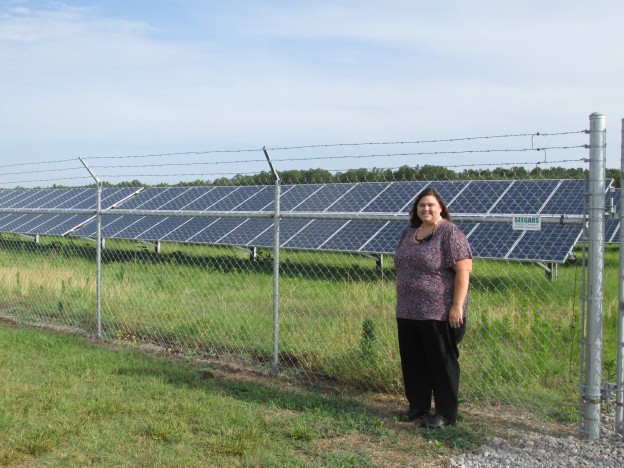Can you think of any reason why people wouldn’t want to use FREE solar energy to provide electricity to do the things we have grown accustomed to, including charge our phone, heat up our dinner, and wash our clothes? Well, when you think about how energy gets from the sun to your power outlet, it becomes far more complicated and much more costly than ‘free’.

QUESTION: How would a member go about getting solar panels installed on their house?
The member would need to contact Edgecombe-Martin EMC to have the engineers determine if existing lines can handle the voltage that would be put back on the lines. The member also must sign a Standard Interconnection Agreement that details the members responsibilities that include information about types of acceptable equipment, safety, and installation and interconnection costs that must be covered by the member.
QUESTION: How much will this lower a members electricity bill?
I’d really like to share some ‘hard facts and figures’, but the reality is that it isn’t that straightforward. You can do some quick googling and find that some projects pay off in 5 (or fewer) years because of hefty tax credits at the federal and some state levels. Solar panels are expensive to install, and the future of solar is not ‘set in stone’– as tax credits expire and the cost becomes even more prohibitive, you may see less solar ~or~ as technology abilities increase and panels become more cost effective, you may see more solar. If you install panels in the EMEMC district you’ll be credited on your bill according the ‘avoided cost’ that co-op calculates– which is how much you would’ve paid for power had they supplied the power to you instead of you supplying it via panels. The bottom line is that right now there is no way to store the energy, so Edgecombe-Martin is there to ‘pick up the slack’ and keep your lights on cloudy days and cold winter nights.

It is important to note there are currently various methods that have been tested and even used to ‘capture’ this energy and store it for times when the sun ISN’T shining, but it is equally as important to note that these technologies are not widely available and thus have high costs associated with installation, use, and maintenance of the systems.
Edgecombe-Martin EMC has a few solar projects that are connected to their system. There is a fairly high cost associated with connecting residential and industrial solar to existing lines, and extnesive paperwork that must be filed. The engineers must verify that the existing lines can handle the load that will be back fed onto the lines during daylight hours. This means that the substations have to be able to adjust the power they are supplying every second– even a cloud can cause a drop in voltage from the solar panels, and the co-op must provide continuous services to all of the members. As you can imagine, this is a modern marvel and requires engineers to be on-staff and monitoring the grid for any potential problems.
